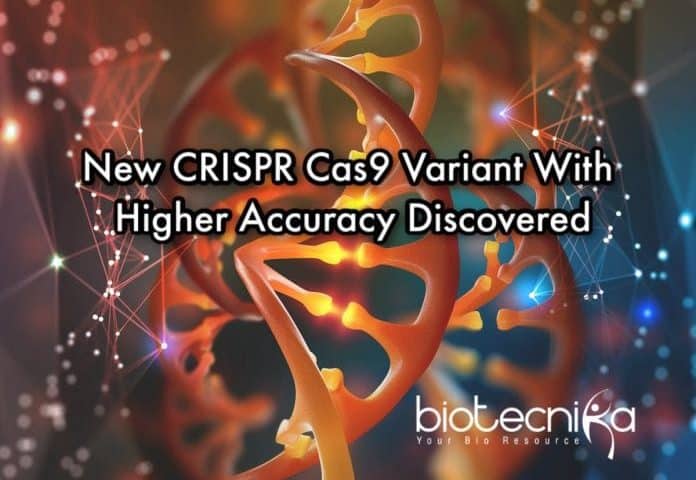New Cas9 Variant With Improved Accuracy In CRISPR Discovered
CRISPR-Cas9 is a unique technology that revolutionized genetics through its ability to edit the genome. It is widely used by scientists to turn off gene expressions or to insert new DNA fragments. But the Cas9 enzyme sometimes cut the genome at undesired spots. But the scientists at the Faculty of Medicine of the Martin Luther University Halle-Wittenberg and Max Planck Unit for the Science of Pathogens in Berlin have now reported a new cas9 variant with increased specificity in genome editing.
A guide RNA that is complementary to the target sequence is required to direct the Cas9 enzyme to the target site. But the Cas9 enzyme can sometimes cut the DNA sequences similar to the actual target called off-targets. This can lead to inaccurate genome editing, which can have profound consequences in the human body. This is why a more specific system of CRISPR-Cas9 is required.
Researchers had been using different approaches to try optimizing the specificity of Cas9. Scientists from Halle and Berlin focused on an evolutionarily conserved domain of Cas9, known as bridge helix in their study.
They found that bridge helix plays a major role in the interaction between Cas9, guide RNA, and the target DNA. A group of amino acid residues that make contact with the phosphate backbone of the guide RNA was identified by them. This contact facilitated the formation of a stable loop, critical for the activity of Cas9. The Cas9-bound guide RNA pairs with the complementary strand of the DNA target sequence in the loop, while displacing the second DNA strand, allowing Cas9 to cut both DNA strands.
The scientists discovered that some of the Cas9 variants generated by changing these amino acid residues showed improved accuracy in CRISPR and less frequency of off-target binding, compared to the original Cas9 enzyme. Variants like R63A/Q768A increased the specificity of Cas9 in human cells. The findings form a basis for the optimization of CRISPR-Cas9. The biochemistry of the CRISPR-Cas9 system needs to be understood better to further improve them.

